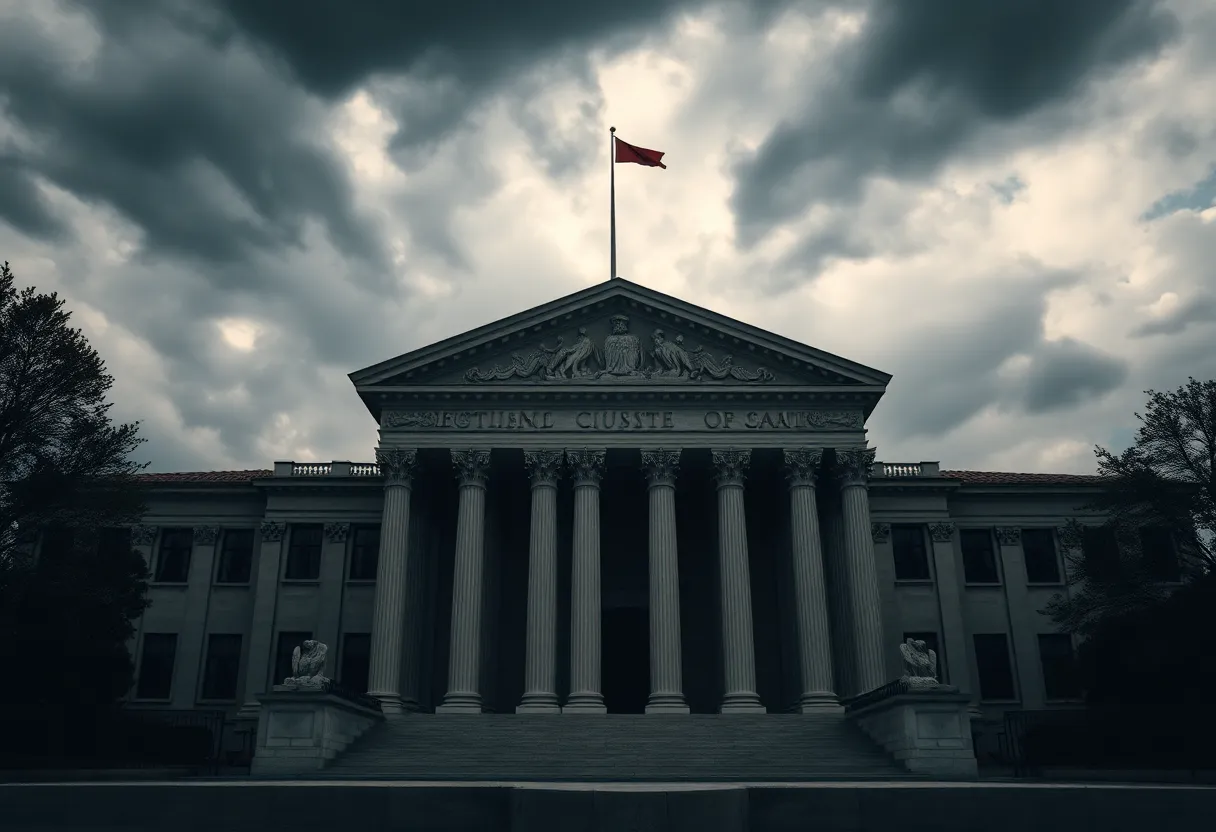News Summary
Brad Sigmon, a death row inmate in South Carolina, has formally requested a postponement of his execution scheduled for March 7. His legal team argues that they need crucial autopsy reports from recent executions to adequately prepare his case. Amid growing concerns about the state’s execution methods and reports of suffering during previous executions, Sigmon’s plea raises significant ethical questions about capital punishment in the state. The South Carolina Supreme Court has previously dismissed a similar request, intensifying the legal battle surrounding his execution.
Concerns Mount as South Carolina Death Row Inmate Seeks to Delay Execution
In Greenville, South Carolina, death row inmate Brad Sigmon is at the center of a heated debate as he has formally requested a postponement of his upcoming execution, initially scheduled for March 7. At 67 years old, Sigmon’s case has garnered attention, particularly due to the ongoing concerns surrounding the state’s execution methods and the availability of crucial autopsy reports from previous executions.
Legal Battle Intensifies
Sigmon’s legal team argues that they have yet to receive the autopsy report related to the state’s most recent execution, which occurred just two weeks prior. This delay has fueled their request for a delay in Sigmon’s own execution, as they believe that understanding these reports is essential for their case. Earlier this month, the South Carolina Supreme Court dismissed a similar request from Sigmon, suggesting the legal process is far from straightforward.
Execution Method Dilemma
According to South Carolina law, Sigmon must select his preferred method of execution by February 21. His options are rather grim, spanning lethal injection, firing squad, or the electric chair. With a dark history attached to his conviction for the 2001 brutal murders of his ex-girlfriend’s parents—who he killed with a baseball bat in their Greenville County home—Sigmon faces the gravity of his choices.
Following the murders, Sigmon attempted to kidnap his ex-girlfriend at gunpoint. Luckily, she managed to escape, although he did fire at her, missing his target. During his confession to authorities, he displayed a tumult of emotions, revealing his inner turmoil regarding his past relationship. These details only deepen the complexity of his situation.
A Growing Fear of Suffering
As the clock ticks down to the deadline for picking an execution method, Sigmon’s hesitation to opt for lethal injection stems from disturbing reports about the experiences of other inmates during their executions. Witnesses have described unsettling moments where inmates appeared to suffer dreadfully before passing away. In fact, during some recent executions in South Carolina, individuals were not declared dead until approximately 20 minutes had gone by post-injection, raising significant alarm bells.
The autopsy report has only been disclosed for one of three recent executions—the case of Richard Moore, executed in November. Reports indicate that Moore experienced distress during his execution, and troubling evidence revealed fluid in his lungs, hinting that he may have been conscious longer than anticipated. Adding to the uncertainty, another recent execution involved Freddie Owens, who did not undergo an autopsy due to his request based on religious beliefs.
Advocacy for a Postponement
Given these troubling circumstances, Sigmon’s attorneys are pressing for a delay in his execution until they can thoroughly review the autopsy reports from recent executions. This request comes in light of South Carolina’s recent resumption of executions after a 13-year hiatus, mainly due to challenges in securing lethal injection drugs. A newly enacted 2023 shield law further complicates matters by allowing the state to keep the details about lethal injection drug providers and execution procedures confidential, adding a layer of opacity to an already murky process.
The Bigger Picture
Adding to the tense atmosphere, the South Carolina Supreme Court has set a guideline permitting executions to happen at least five weeks apart. However, Sigmon’s team is advocating for a more extended delay of 13 weeks, arguing that rushing through this complicated process could lead to significant ethical concerns.
South Carolina is known for its robust application of the death penalty, having executed 46 inmates since its reintroduction in the United States back in 1976. In the early 2000s, the state averaged three executions per year, and it ranks among the nine states with the highest execution rates.
As the deadline looms and public interest swells, the next steps in Brad Sigmon’s case will certainly keep many on the edge of their seats, as this situation reflects larger concerns about the administration of justice and the ethical implications of capital punishment in the state.
Deeper Dive: News & Info About This Topic
- Fox News: South Carolina Death Row Inmate Seeks to Delay Execution
- WCNC: South Carolina Execution News
- Associated Press: South Carolina Execution of Marion Bowman
- USA Today: Marion Bowman Executed in South Carolina
- Google Search: South Carolina Death Penalty

Author: STAFF HERE NEWBERRY
The NEWBERRY STAFF WRITER represents the experienced team at HERENewberry.com, your go-to source for actionable local news and information in Newberry, Newberry County, and beyond. Specializing in "news you can use," we cover essential topics like product reviews for personal and business needs, local business directories, politics, real estate trends, neighborhood insights, and state news affecting the area—with deep expertise drawn from years of dedicated reporting and strong community input, including local press releases and business updates. We deliver top reporting on high-value events such as the Newberry Opera House performances, Newberry Arts Fest, and the Newberry County Fair. Our coverage extends to key organizations like the Newberry County Chamber of Commerce and the Newberry Museum, plus leading businesses in manufacturing and agriculture that power the local economy such as Amick Farms and Newberry Mills. As part of the broader HERE network, including HEREAiken.com, HEREBeaufort.com, HEREChapin.com, HERECharleston.com, HEREClinton.com, HEREColumbia.com, HEREGeorgetown.com, HEREGreenwood.com, HEREGreenville.com, HEREHiltonHead.com, HEREIrmo.com, HEREMyrtleBeach.com, HERENewberry.com, HERERockHill.com, and HERESpartanburg.com, we provide comprehensive, credible insights into South Carolina's dynamic landscape.





